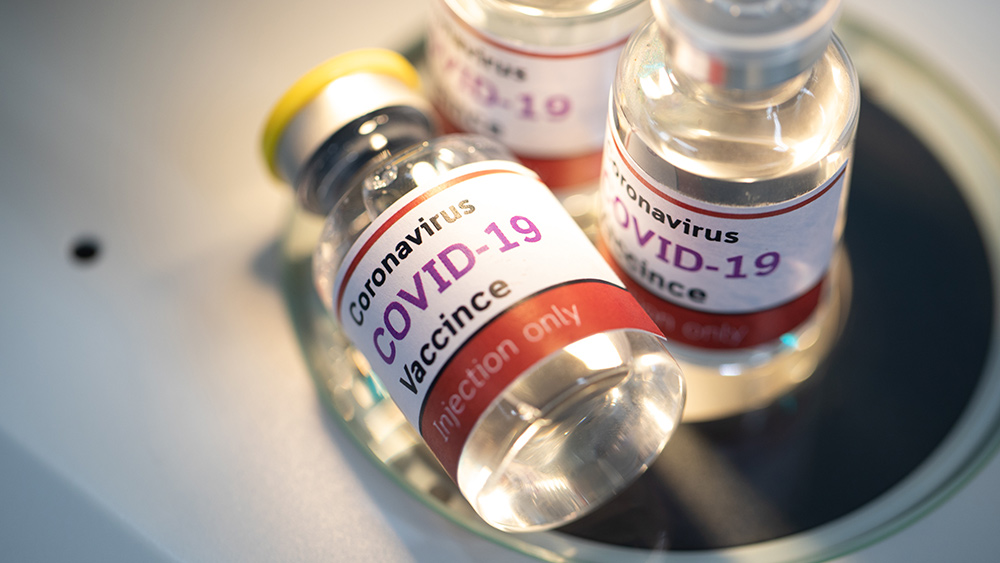
An Indonesian scientist who led the clinical trials of Sinovac's Wuhan coronavirus (COVID-19) vaccine in the country succumbed to the disease. Multiple Indonesian news outlets reported the death of Novilia Sjafri Bachtiar on July 7. She joined the list of Indonesians dying from COVID-19 caused by the Delta or B16172 variant despite being inoculated with the CoronaVac vaccine.
A report by kumparanNEWS directly mentioned Novilia's death due to COVID-19, which a Kompas report seconded. The latter mentioned that she died after receiving treatment at a hospital in Bandung city, located in the western portion of Java Island. Meanwhile, Sindonews quoted an official of state-owned drug manufacturer PT Bio Farma who said Novilia had been buried "according to COVID-19 protocols."
Indonesian Minister of State-Owned Enterprises Erick Thohir posted a message on social media mourning the "huge loss" of Novilia. He said in his message: "She was [the] lead scientist and head of dozens of clinical trials done by Bio Farma, including COVID-19 vaccine clinical trials in cooperation in Sinovac. [The vaccine] has been produced and injected into tens of millions [of] people in Indonesia as part of our effort to be free from this COVID-19 pandemic."
Thohir did not give the cause of Novilia's death in his post. Meanwhile, Bio Farma did not immediately respond to a request for comment on Novilia's passing. The scientist was in her early fifties at the time of her demise.
According to independent data group Lapor COVID-19, 131 health workers have died since June – including 50 in July. Most of these health workers got the two-dose CoronaVac vaccine as part of the country's mass vaccination program. But these deaths have put the effectiveness of the Sinovac shot in preventing COVID-19 hospitalization and death into question.
Indonesia's health minister: Blame the virus, not the vaccine
The Sinovac vaccine saw widespread use in a number of Southeast Asian countries such as Malaysia, the Philippines and Indonesia. The archipelago kicked off its mass vaccination program in January 2021 using the Beijing-based company's vaccine candidate. (Related: Indonesia, which has the second-worst COVID-19 outbreak in Asia, is now the testing ground for a Chinese vaccine.)
Novilia's death came as COVID-19 deaths in Indonesia reached record highs. On July 2, Indonesia recorded 25,830 new daily infections alongside 539 deaths. Five days later on July 7, it reported 34,379 infections and more than 1,000 daily deaths. The B16172 or Delta variant first identified in India was responsible for this latest wave of infections and deaths.
Last month, Sinovac Biotech spokesman Liu Peicheng told Reuters that preliminary results showed the vaccine exhibiting a three-fold neutralizing ability against the Delta variant. The results were based on blood samples from individuals who got the CoronaVac vaccine. Liu added that a booster shot following the two-dose regimen could quickly elicit a "stronger and more durable antibody reaction" against the Delta variant.
The Indonesian minister of health later defended Indonesia's use of the Sinovac vaccine amid the wave of infections and deaths. Minister of Health Budi Gunadi Sadikin said on July 2 that the recent COVID-19 surge in the country ought to be blamed on the Delta variant. He told reporters that it was wrong to blame the vaccine for the spike in cases as other countries that used other vaccines also experienced them.
Budi said in a webinar held by the Jakarta Foreign Correspondents Club: "The issue that we are facing is not about the difference efficacy between vaccines, it is primarily because of the Delta variant. It hits every country, so nobody is safe." (Related: Post-covid vaccine illness "wave" spreads to Indonesia.)
The health minister added that while the number of infections is increasing drastically, vaccination using the Sinovac shot "reduces the risk from severe to mild, and from mild to asymptomatic." Budi continued: "The number of deaths in the second wave, compared to the first in terms of percentage, is actually fewer."
According to Budi, Indonesia was not solely depending on the Sinovac shots to inoculate its entire adult population of 181.5 million. But he noted that the Chinese drug manufacturer was the only one that committed to quickly delivering the vaccines it promised.
"AstraZeneca failed to meet their commitment to deliver 50 million doses by the end of the year because of whatever problem they have had. [So] they are only able to send 30 million doses by this year, and the rest next year," he said.
Aside from AstraZeneca, Budi said that Indonesia expected four million doses of Moderna's mRNA vaccine sent by the U.S. He added that the first delivery of 50 million doses of the Pfizer/BioNTech mRNA vaccine orderd by the archipelago – to be used on children 12 to 17 years old alongside Sinovac – will arrive in August.
Visit Pandemic.news to read more stories about Sinovac and other COVID-19 vaccines.
Sources include:
Please contact us for more information.





















